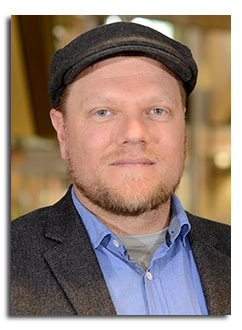
Abstract
This research is part of the Facilitating Local Network Charges and Virtual Net Metering research project, led by the Institute for Sustainable Futures (ISF) and funded by the Australian Renewable Energy Agency (ARENA) and other partners. This research developed a novel method for estimating and comparing the long-term economic costs and benefits of increasing the capacity of distributed generation on electricity networks and therefore potentially avoiding future network expansion. A representative agent model is used to project growth in peak demand and estimate the future costs of network expansion under two unique scenarios. The investment in future electricity network infrastructure is estimated using growth projections for consumers and prosumers on the electricity network using AEMO 2015 NEFR forecasts. The model compares the costs of business as usual (BAU) network expansion with the costs and benefits of increased distributed generation incentivised by local generation network credits (LGNCs) paid to distributed generators. The model considers four network levels, twelve representative agents and two distribution network operators for the state of NSW. The model shows that increasing the amount of distributed energy on low voltage networks avoids considerable network expansion costs, particularly on the High Voltage and Transmission levels of the network. Avoided network augmentation provided by PV, particularly from the residential sector, exhibit diminishing marginal returns as coincident peak demand is shifted later into the evening with increasing PV penetration. Nevertheless, the model is able to show that increasing the amount of distributed generation incentivised by an LGNC, leads to significant cost savings from avoided network augmentation it increases network utilisation and lowers electricity bills for all consumers.
Click here to see all available video seminars.
Click here to go to the SPREE HOMEPAGE.
Brief Bio
Dr Scott Kelly is a Research Principal at the Institute for Sustainable Futures (ISF) at the University Technology of Sydney (UTS). His research interests include the economics of energy demand, energy systems modelling and the economics of climate change. He is a project director in sustainability finance and economics and a panel member of the sustainability advantage program. He is a research affiliate of the Electricity Policy Research Group and an associate of the Centre for Climate Change Mitigation Research at the University of Cambridge. Prior to his role at ISF he was Senior Research Associate at the University of Cambridge, UK and a Junior Research Fellow of Darwin College. In 2012 he received his PhD from the University Cambridge in the field of economics, energy and climate change. In 2007 he was awarded the Rotary Ambassadorial Award to do an MPhil in Sustainable Development. Other awards include the CT Taylor Scholarship, Cambridge Trusts Scholarship and The Cambridge Econometrics Bursary. He also holds a Masters of Renewable Energy and a Bachelor of Mechanical Engineering with Honours from the University of Auckland. He is an author of several book chapters and has published papers in a range of energy journals on the topics of energy systems modelling, energy policy and climate change.
